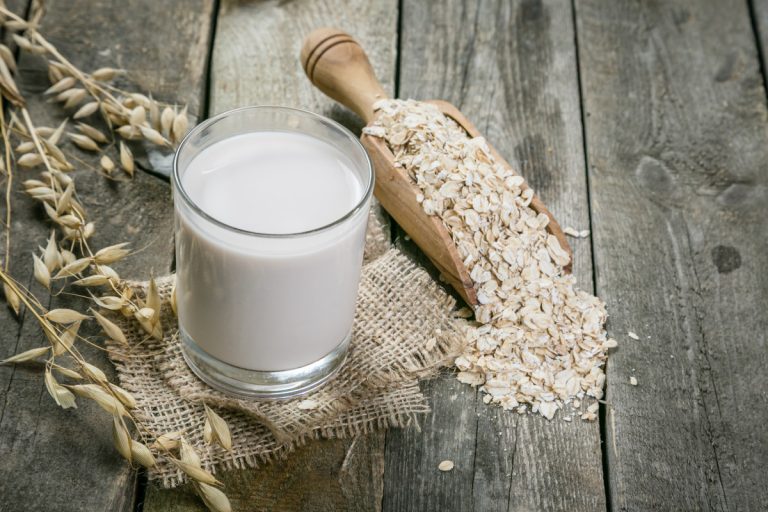Oat milk is a plant-based, non-dairy beverage made with oats and water.
It has gained popularity as an alternative to dairy milk due to its creamy texture, mild flavor, and suitability for various dietary preferences and restrictions, including vegan, lactose-intolerant, and dairy-free diets.
Production Process
- Soaking: Oats are soaked in water to soften them.
- Blending: The soaked oats are blended with fresh water to create a slurry.
- Straining: The mixture is then strained, typically using a fine mesh, cheesecloth, or specialized filtration systems, to remove the solid oat pulp, resulting in a smooth liquid.
- Fortification and Flavoring (Optional): Commercial oat milk may be fortified with vitamins and minerals (such as calcium, vitamin D, and B vitamins) to enhance its nutritional profile. Additionally, flavors such as vanilla or sweeteners may be added to improve its taste.
Culinary Uses
Oat milk is versatile and can be used in various applications, including:
- Beverages: As a dairy substitute in coffee, lattes, tea, and smoothies.
- Cooking and Baking: Used in recipes that call for milk, such as soups, sauces, pancakes, and baked goods.
- Cereal and Oatmeal: Poured over cereal, granola, or added to oatmeal for creaminess.

